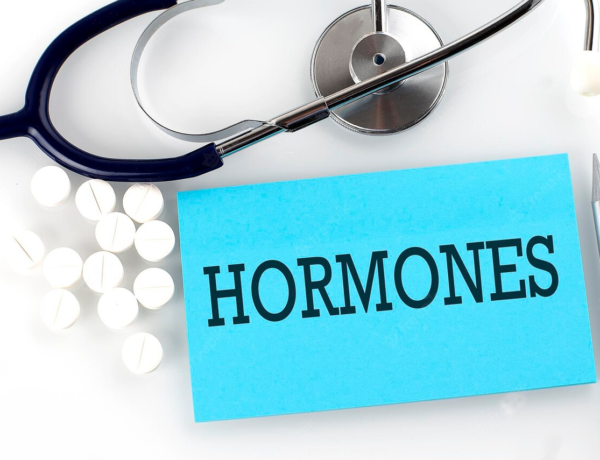The game’s not big enough unless it scares you a little. Wait a minute – You can’t give orders here.
JEAN-LUC PICARD
Cardiovascular diseases are the second leading cause of deaths in the US. Moreover, it is 1/3 of deaths in women, and more than 1⁄4 of deaths in men. We face 130 000 strokes and 120 000 heart attacks per year. The main causes of these diseases are hypertension, diabetes, excess weight, smoking, stress, and oxidation, which accelerate the process of arteriosclerosis.
In my opinion, there are several causes to this epidemic, of which are numerous amount of dietary mistakes / misunderstanding.
The first thing to be blamed is cholesterol, but is this true or is this a myth?
Food rich in cholesterol (eggs, butter, cheese, red meat, organ meats) have been banned for over 60 years, yet despite a strong reduction in their consumption, cardiovascular diseases have continued to increase! This doesn’t seem logical!!!
In fact, cholesterol is an absolute essential element to many functions of the body:
– Cholesterol is essential to protect the fluidity and permeability of cell membranes, so that they can remain waterproof. If they were not waterproof, we would simply be like a puddle of water, as our cells couldn’t hold together.
– Cholesterol allows cells to communicate with each other.
– Cholesterol participates to scars repair process.
– It is a precursor of vitamin D.
– It is a precursor of steroid hormones: sex hormones (progesterone, estrogens, testosterone), but also to adrenal hormones (cortisol, DHEA, aldosterone).
– Cholesterol contributes to bile salts production, which is absolutely necessary to digest fats.
– 20% of the myelin sheet (white substance of the spinal cord and brain) is made of cholesterol, and 25% of the total cholesterol is used by the brain: memory, mood, and cognition.
– Cholesterol is also a natural antioxidant and anti-inflammatory element, and more.
So, why is cholesterol described as such a villain ?
Well, this all started with an American nutritionist named Ancel Keys, who carried out a study after World War II, called «The 7 countries study. » In this study he highlighted a correlation between high cholesterol levels and cardiovascular accidents. These results led him to propose the « lipid hypothesis », that cholesterol is a major risk factor, responsible for high cardiovascular mortality. However, several years later, other biologists noticed that Ancel Keys’ study suffered from several comparison bias. For example, Ancel Keys voluntarily removed a few countries form the original chosen countries, that didn’t fit his statistics. One of these countries was France, where the majority of people ate lots of cheese, cream and butter….!!!
Following Ancel Keys’ study, clinical trials were conducted on US veterans placed on cholesterol-lowering diets, but these attempts did not have a significant impact on their mortality, so the “lipid hypothesis” was not validated.
In 1954, French researcher Jean Cottet realised that farm workers intoxicated by the pesticide they were spreading in the fields, had plummeting cholesterol levels. A chemist friend of his (Michael Oliver) synthesized a drug derived from this pesticide, called Clofibrate. The test of this molecule on rats, and then on patients confirmed its lowering cholesterol effect.
The World Health Organization carried out a clinical trial on 15,000 Europeans to evaluate the effect of Clofibrate on the prevention of heart attacks, but the trial had to be stopped prematurely, as the group taking Clofibrate had a higher prevalence of heart attacks than the group taking placebo.
Despite these non-conclusive studies, the entire world started to believe on the lipid theory, and see cholesterol rich foods as the villains for most cardiovascular diseases. These believes were due to several reasons / manipulations from:
– The food industry that saw a big opportunity to banish animal fats, and to replace them with vegetable fats (oils, margarine) production, which is way more profitable.
– The medical industry saw a big opportunity to sell anti-cholesterol medication.
And the low fat, high carbs craze began! American abandoned their traditional high fat diet (eggs, bacon, butter, meat, animal fats) for a so-called « healthier diet » of high cereals / high fiber, and low fat diet. This marked the beginning of the epidemic of obesity, diabetes, and cardiovascular diseases.
The myth of saturated fats!
Saturated fats (butter, ghee, goose fat, duck, lard, coconut oil, fatty meats, fatty fish, eggs, etc.) are the most stable fats when cooked, which means that they don’t oxidize as much as unsaturated fats. They should be eaten regularly. They are necessary for the proper functioning of the brain, the immune system, steroid hormones (adrenal and gonads) and cell repair. They increase the feeling of satiety and help you to lose weight.
A study of 600,000 people published in the Annals of Internal Medicine in early 2014 found no significant association between saturated fat intake and cardiovascular disease.”
The myth of salt!
You should know that sea or Himalayan salt is necessary and excellent for health. Indeed, the adrenals need it to manage stress, the stomach needs it to produce hydrochloric acid, and the nervous system needs salt for the neurons conduction.
« A meta-analysis published in the Journal of Hypertension concluded that there was no evidence between salt reduction in hypertensive patients, or people with normal blood pressure and their risk of heart attack, stroke, or death ».
« The Journal of the American Medical Association (JAMA) reported that people ingesting less salt had a higher risk of dying from a heart attack ».
Indeed, we are told that we consume too much salt, but according to the Salt Institute people consumed far more salt until the early 20th century, because salt was used to preserve food.
Are alcohol and sugar contributors to cardiovascular diseases? YES!
Sugar has devastating effects on the blood vessels. It thickens the blood and makes it sticky, which reduces oxygenation to the tissues, and thus reduces the supply of nutrients to the organs. Also, alcohol, and all forms of sugars (including carbohydrates) have to be watched like a hawk! This includes glucose and high fructose corn syrups which are found in many foods…
Are processed fats contributors to cardiovascular diseases? YES!
This is the main cause of cardiovascular disease, they flourished after the Second War in the form of margarine. They completely distort the molecular shape of cells, and create chronic inflammation. We know them as hydrogenated or partially hydrogenated oils.
“32 studies, involving a total of 530,000 participants, examined the association between fatty acid consumption and the risk of coronary heart disease. The analysis confirms that consumption of TRANS fatty acids, is indeed associated with risk of coronary heart disease, but not for participants consuming saturated fatty acids. “
The most important cause of cardiovascular diseases is Inflammation!
Cardiovascular disease is caused by a chronic inflammatory process! The inflammatory process starts with an injury to the blood vessel created either by viruses, parasites, free radicals, bacteria, allergens, hydrogenated oils, sugars, tobacco, alcohol, or even intense stress. The injured cells invite white blood cells to come to the site, in order to destroy and clean the invaders present in the arteries. When the vessel is cleaned, the inflammatory process stops, leaving the cells to repair themselves. This is a normal process. In atherosclerosis, this inflammatory process never stops (as long as the invaders are not eliminated), so the wound never heals, and a deposit called plaque develops on the wound.
Arterial plaques are composed primarily of calcium, fibrous repair tissue, enlarged white blood cells filled with debris, unsaturated fats (74%), and damaged and oxidized saturated fats. These plaques are comparable to an accumulation of pus under an infected wound. Eventually the crust of the plaque breaks off, and all these deposits float in the arteries like lava in a volcano. The blood clots cause thrombosis, block blood flow in the arteries which results in either a heart attack or a stroke.
How to prevent cardiovascular diseases?
– First of all, the inflammatory process must be reduced. This means to eliminate all hydrogenated fats, sugars, corn syrup, processed foods, allergenic foods (soy, dairy, gluten, alcohol, etc.).
– Reduce exposure to chemicals: cosmetics, household products, chlorine, fluoride, drugs that are absolutely not necessary, and heavy metals.
– Reduce / manage stress.- Stop smoking and stop taking drugs.
– A low-sugar diet is preferred.
– We will also treat the underlying infections (dental, virus, bacteria, candida).
– If you suffer from leaky gut syndrome, you need to concentrate on repairing the intestinal wall and rebalancing the intestinal flora.
– Rebalance hormones (sexual and adrenal).
– Eat saturated fats: YES, you read correctly: butter, cream, goose, duck, pork) and eggs, meat, fatty fish.
– And don’t forget to exercise regularly and sunbathe!
Finally, the consumption of saturated animal fats and cholesterol levels have nothing to do with cardiovascular disease. It is the inflammatory process due to the above- mentioned reasons, that are the underlying causes.
Yours in health,
Beatrice Levinson Naturopath & Certified GAPS Practitioner www.beatrice-levinson-gaps.com









No Comments